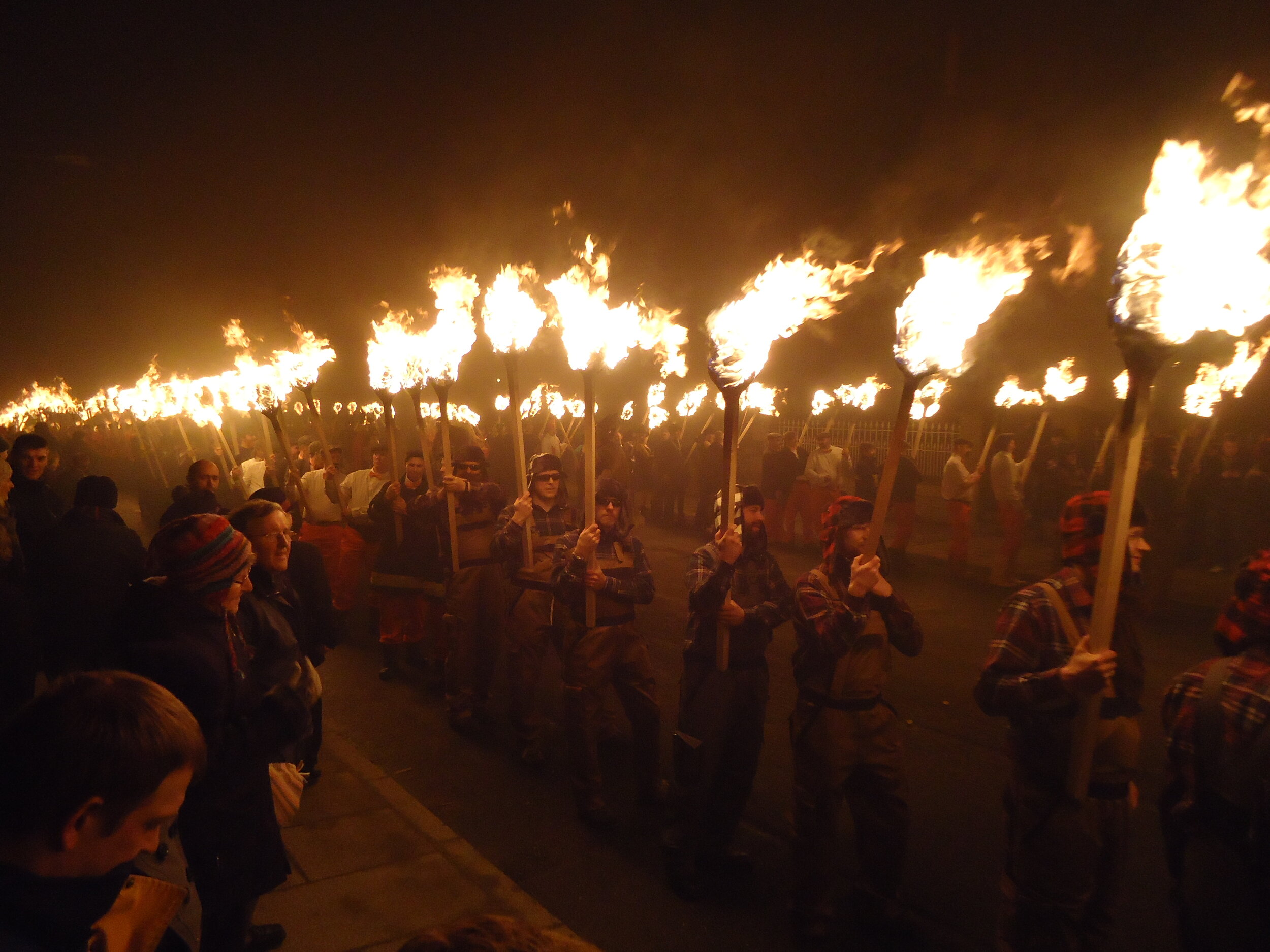The Shetland Islands come alive each winter with Up Helly Aa, Europe’s largest Viking fire festival celebrating Nordic history and culture."
Read MoreNordic and Celtic Traditions in Scotland’s Shetland Islands
Shetland ponies in a field on one of the Shetland Islands. Infinite Ache. CC BY-NC 2.0.
Located 110 miles northeast of the Scottish mainland are the Shetland Islands, a sub-Arctic archipelago in the north Atlantic Ocean. The islands, with a population of 22,920 centered around the town of Lerwick, are home to one of the most unique cultures in the British Isles, with the islands’ residents maintaining a blend of Nordic and Celtic influences.
While travel to the archipelago is largely limited due to the ongoing COVID-19 pandemic, following the global crisis, any traveler looking to take the road less traveled will find joy in visiting the Shetland Islands. Given the region’s rich history, diverse local culture and beautiful wildlife, the farthest north region of Scotland should not be overlooked when planning future adventures abroad.
A History of Nordic and Celtic Tradition
A parade through Lerwick during Up Helly Aa, an annual Shetland fire festival which pays tribute to the archipelago’s Viking origins. Vicky Brock. CC BY-SA 2.0.
While humans have inhabited the Shetland Islands since at least 2700 B.C., with evidence to suggest that the Romans knew about the archipelago during the height of their empire, modern Shetland culture began at the end of the 9th century A.D. with the colonization of the archipelago and the nearby Orkney Islands by Vikings from Scandinavia.
The Shetland Islands would remain under Norse rule for around 600 years, during which the islands’ population Christianized and gained a grounding for the region’s culture that is still seen to this day. For instance, remnants of Norn, the predominant language of the time but one that is now extinct, has influenced the Shetland dialect spoken in the region. Likewise, festivals such as Up Helly Aa, an annual midwinter fire festival which honors pagan and Christian traditions, can trace their roots back directly to Viking colonialism.
Following several centuries of conflict and growing Scottish influence in the region, sovereignty over the archipelago was sold to Scotland in 1468. This transfer of power, which lasted until 1707 when Scotland and England joined together under the name Great Britain, saw the adoption of more Celtic customs, as well as increased trade with the rest of Europe. The introduction of folk music, the cuisine of the region, and the English language can trace their origins back to this time period.
Into the contemporary era, the Nordic and Celtic cultures and heritage have blended together. This is represented in the aforementioned festivals and language of the region, as well as in the archipelago’s civil parish names, which feature both Old Norse and Celtic origins.
Visiting the Shetland Islands
Lerwick, the Shetland Islands’ largest settlement and only town. Balou46. CC BY-SA 4.0.
Given how remote the Shetland Islands are in comparison to the rest of Scotland, visitors to the islands can either arrive via a 12-hour overnight boat ride from Aberdeen, or by plane from one of six cities in Scotland or from Bergen, Norway.
Once on the archipelago, visitors have a number of experiences to partake in. Lerwick is home to a number of festivals throughout the year, including the Shetland Folk Festival, the Shetland Accordion and Fiddle Festival, and the largest celebration of Up Helly Aa. Likewise, the town is home to the Shetland Museum and Archives, which is dedicated to documenting the unique history and traditions of the region.
Venturing away from Lerwick, travelers can take in the untouched nature of the islands in one of three national nature reserves, the most popular being the Hermaness National Nature Reserve, a seabird colony on the island of Unst. For those more interested in the island’s oceanic location, Lonely Planet recommends kayaking, sailing and surfing for those who can brave the frigid waters of the north Atlantic.
For a taste of the local cuisine, the archipelago offers a number of highly recommended restaurants. Steamed lemon sole from The Dowry, reestit mutton soup from Peerie Shop Cafe, and saucermeat, a spiced breakfast sausage, from Fjara Cafe Bar, are all favorites among travelers and locals alike.
The Shetland Islands represent the best of what Scotland as a whole has to offer. The archipelago’s rich history, unique culture and variety of experiences offer something for everyone to enjoy. Following the pandemic, a visit to the Shetland Islands is a must for any world traveler.
RELATED CONTENT:
Up Helly Aa: A Viking Fire Festival in Scotland’s Shetland Islands
VIDEO: Ancient Scotland
Jacob Sutherland
Jacob is a recent graduate from the University of California, San Diego. Previously, he worked for The UCSD Guardian, serving both as News Editor and a columnist. In addition to his work at Catalyst, he writes the online column, PC Princess, and centers his writing around social justice issues.




